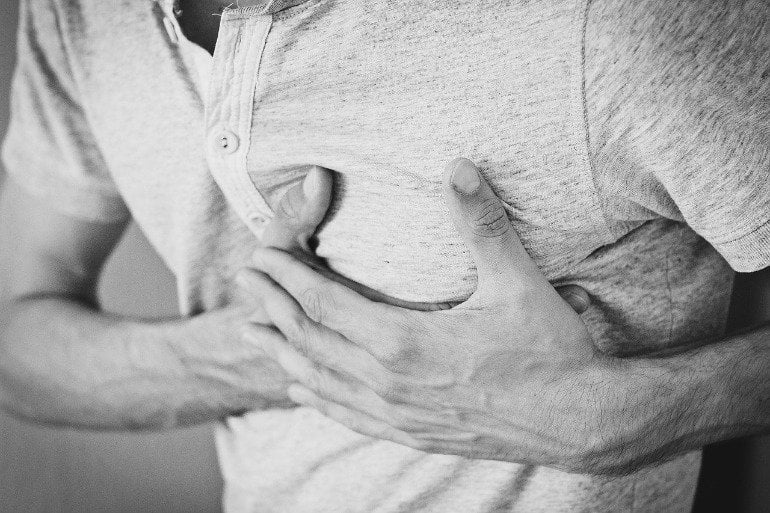Summary: Exposure to energy drinks increases heart rate and impacts cardiovascular function, researchers report. Energy drinks may have a significant impact on human cardiomyocytes.
Source: Texas A&M
A team of researchers, led by a Texas A&M University professor, has found that some energy drinks have adverse effects on the muscle cells of the heart.
The study, led by Dr. Ivan Rusyn, a professor in the Veterinary Integrative Biosciences (VIBS) Department at the Texas A&M College of Veterinary Medicine & Biomedical Sciences (CVMBS), was published in Food and Chemical Toxicology. In it, researchers observed cardiomyocytes – human heart cells grown in a laboratory – exposed to some energy drinks showed an increased beat rate and other factors affecting cardiac function.
When placed in the context of the human body, consumption of these beverages has been linked to improper beating of the heart, cardiomyopathy (disease of the heart muscle which makes it difficult for the heart to pump blood), increased blood pressure, and other heart conditions.
With the global sales of energy drinks estimated at $53 billion in 2018 and rapidly growing, it is important to understand the potential unintended health consequences associated with these beverages, according to Rusyn.
“Because the consumption of these beverages is not regulated and they are widely accessible over the counter to all age groups, the potential for adverse health effects of these products is a subject of concern and needed research,” Rusyn said. “Indeed, the consumption of energy drinks has been associated with a wide range of adverse health effects in humans, many of them are concerning the effects on the heart.”
Researchers evaluated 17 widely available over-the-counter brands. They then treated cardiomyocytes with each drink.
Researchers also studied the composition of the energy drinks using novel methods. By comparing the effects and differing ingredient concentrations in each drink, they were able to infer which ingredients may be contributing more to adverse effects on the treated cardiomyocytes. Using mathematical models, researchers determined that the possible presence of theophylline, adenine and azelate, substances which can have negative effects on the heart.

“Little is known about the ingredients that may contribute to the adverse effects of energy drinks on the heart,” Rusyn said. “Specifically, the evidence for cardiovascular effects from studies in humans remains inconclusive, as the controlled clinical trials were largely limited in the number of participants. They were tested only a limited number of energy drink types, and are difficult to compare directly, because they employed different methods to evaluate the function of the cardiovascular system.”
Further research is warranted on the ingredients identified in this study to ensure the safety of their consumption, especially by consumers with pre-existing health conditions.
“This study shows that some of the tested energy drinks may have effects on human cardiomyocytes, and these data corroborate other studies in humans,” Rusyn said. “Therefore, we hope that the consumers will carefully weigh the performance-enhancing benefits of these beverages versus the emerging data that suggests that they may have real adverse effects.
“We also hope that the Food and Drug Administration takes a closer look at whether these beverages may need to be carefully reviewed with respect to possible labeling of their adverse health effects, and whether certain age groups and susceptible sub-populations should be advised against consumption of these beverages.”
About this neurology and cardiovascular function research news
Source: Texas A&M
Contact: Jennifer Gauntt – Texas A&M
Image: The image is in the public domain
Original Research: Closed access.
“Relationships between constituents of energy drinks and beating parameters in human induced pluripotent stem cell (iPSC)-Derived cardiomyocytes” by Ivan Rusyn et al. Food and Chemical Toxicology
Abstract
Relationships between constituents of energy drinks and beating parameters in human induced pluripotent stem cell (iPSC)-Derived cardiomyocytes
Consumption of energy drinks has been associated with adverse cardiovascular effects; however, little is known about the ingredients that may contribute to these effects. We therefore characterized the chemical profiles and in vitroeffects of energy drinks and their ingredients on human induced pluripotent stem cell (iPSC)-derived cardiomyocytes, and identified the putative active ingredients using a multivariate prediction model. Energy drinks from 17 widely-available over-the-counter brands were evaluated in this study. The concentrations of six common ingredients (caffeine, taurine, riboflavin, pantothenic acid, adenine, and L-methionine) were quantified by coupling liquid chromatography with a triple quadrupole mass spectrometer for the acquisition of LC-MS/MS spectra. In addition, untargeted analyses for each beverage were performed with a platform combining LC, ion mobility spectrometry and mass spectrometry (LC-IMS-MS) measurements. Approximately 300 features were observed across samples in the untargeted studies, and of these ~100 were identified. In vitro effects of energy drinks and some of their ingredients were then tested in iPSC-derived cardiomyocytes. Data on the beat rate (positive and negative chronotropy), ion channel function (QT prolongation), and cytotoxicity were collected in a dilution series. We found that some of the energy drinks elicited adverse effects on the cardiomyocytes with the most common being an increase in the beat rate, while QT prolongation was also observed at the lowest concentrations. Finally, concentration addition modeling using quantitative data from the 6 common ingredients and multivariate prediction modeling was used to determine potential ingredients responsible for the adverse effects on the cardiomyocytes. These analyses suggested theophylline, adenine, and azelate as possibly contributing to the in vitro effects of energy drinks on QT prolongation in cardiomyocytes.







